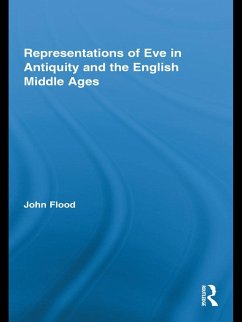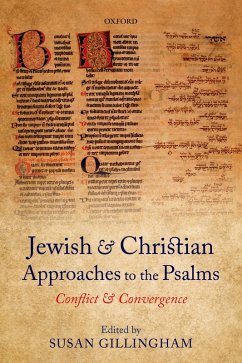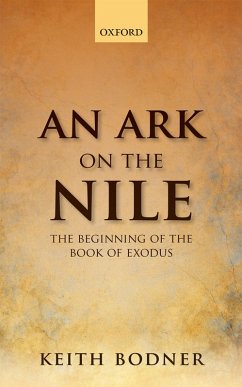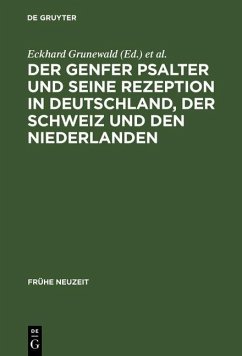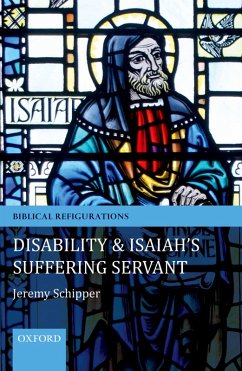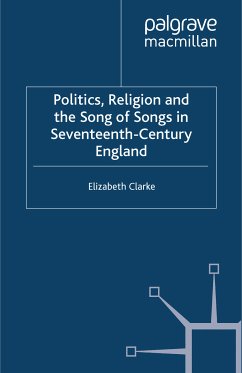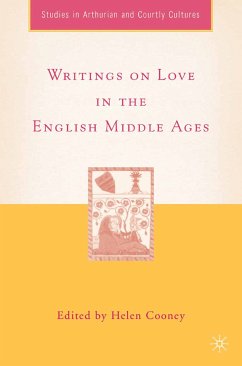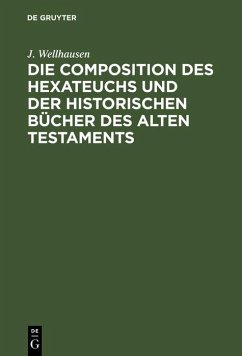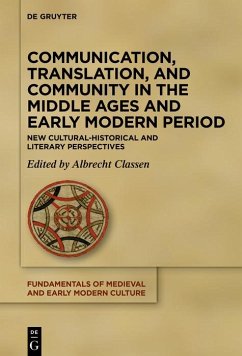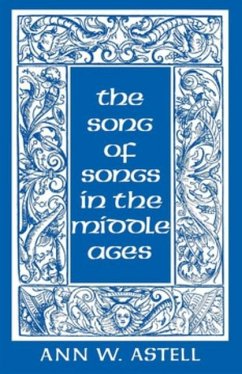
The Song of Songs in the Middle Ages (eBook, PDF)

PAYBACK Punkte
62 °P sammeln!
Included among the sacred books of Judaism and Christianity alike, the Song of Songs does not mention God at all; on the surface it is a lyrical exchange between unnamed lovers who articulate the range of emotions associated with sexual love. Ann W. Astell here examines medieval reader response, both interpretive and imitative, to the Song. Disputing the common view that the literal meaning of Canticles had no value for medieval readers, Astell points to twelfth-century commentaries on the Song, as well as an array of Middle English works, as evidence that the Song's sensuous imagery played an...
Included among the sacred books of Judaism and Christianity alike, the Song of Songs does not mention God at all; on the surface it is a lyrical exchange between unnamed lovers who articulate the range of emotions associated with sexual love. Ann W. Astell here examines medieval reader response, both interpretive and imitative, to the Song. Disputing the common view that the literal meaning of Canticles had no value for medieval readers, Astell points to twelfth-century commentaries on the Song, as well as an array of Middle English works, as evidence that the Song's sensuous imagery played an essential part in its tropological appeal.
Emphasizing the ways in which a complex fusion of the Song's carnal and spiritual meanings appealed rhetorically to a variety of audiences, Astell first considers interpretive responses to Canticles, contrasting Origen's dialectical exposition with the affective commentaries of the twelfth century-ecclesiastical, Marian, and mystical. According to Astell, these commentaries present Canticles as a marriage song that mirrors a series of analogous marriages, both within the individual and between human and divine persons. Astell describes interpretations of the Song of Songs in terms of the various feminine archetypes that the expositors emphasize-the Virgin, Mother, Hetaira, or Medium. She maintains that the commentat5ors encourage the auditor's identification with the figure of the Bride so as to evoke and direct the feminine, affective powers of the soul. Turning to literature influenced by the Song, she then discusses how the reading process is reinscribed in selected works in Middle English, including Richard Rolle's autobiographical writings, Pearl, religious love lyrics, and cycle dramas.
The Song of Songs in the Middle Ages provides an innovative model of reader response that opens the way for a deeper understanding of the literary influence of biblical texts.
Emphasizing the ways in which a complex fusion of the Song's carnal and spiritual meanings appealed rhetorically to a variety of audiences, Astell first considers interpretive responses to Canticles, contrasting Origen's dialectical exposition with the affective commentaries of the twelfth century-ecclesiastical, Marian, and mystical. According to Astell, these commentaries present Canticles as a marriage song that mirrors a series of analogous marriages, both within the individual and between human and divine persons. Astell describes interpretations of the Song of Songs in terms of the various feminine archetypes that the expositors emphasize-the Virgin, Mother, Hetaira, or Medium. She maintains that the commentat5ors encourage the auditor's identification with the figure of the Bride so as to evoke and direct the feminine, affective powers of the soul. Turning to literature influenced by the Song, she then discusses how the reading process is reinscribed in selected works in Middle English, including Richard Rolle's autobiographical writings, Pearl, religious love lyrics, and cycle dramas.
The Song of Songs in the Middle Ages provides an innovative model of reader response that opens the way for a deeper understanding of the literary influence of biblical texts.
Dieser Download kann aus rechtlichen Gründen nur mit Rechnungsadresse in A, D ausgeliefert werden.




